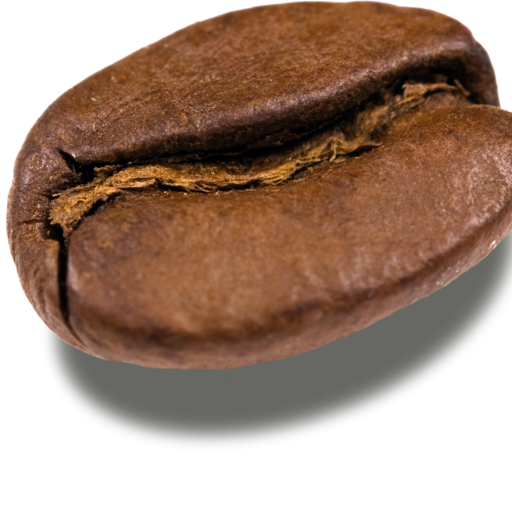Blends
How to Store Coffee at Home to Keep Your Coffee Fresh?
how to store coffee beans
There’s something undeniably comforting about starting your day with a perfect cup of coffee. Whether you’re a fan of a robust dark roast or a smooth, balanced medium blend, the freshness of your coffee beans or grounds plays a crucial role in delivering that delicious flavor. But, how do you keep your coffee fresh at home? With a few thoughtful storage tips, you can ensure that your coffee stays flavorful, aromatic, and ready to brew every time you reach for it.
Understanding Coffee Freshness
Before we dive into the specifics of storing coffee at home, let’s explore why freshness matters. Coffee beans begin to lose their freshness almost immediately after roasting. This is because the oils in the beans, which contribute to flavor and aroma, start to degrade when exposed to air, light, heat, and moisture. Over time, these factors cause coffee to become stale, resulting in a flat, dull flavor.

When you purchase coffee, you’re typically getting beans that have already undergone some level of degradation. The goal, then, is to slow down this process as much as possible once the coffee is in your hands. Proper storage is the key to achieving this.
Choosing the Right Container for Coffee Storage
One of the first steps in keeping coffee fresh is choosing the right container. The container you use should protect your coffee from the elements that cause it to go stale. Here are some tips on what to look for:
- Airtight Seal: An airtight container is essential. Exposure to air is one of the main culprits behind stale coffee, so a container with a good seal will help lock in freshness.
- Opaque Material: Light, especially direct sunlight, can speed up the degradation of coffee. Opt for a container made from opaque materials like ceramic, stainless steel, or dark-colored glass.
- Cool, Dark Location: Store your coffee container in a cool, dark place like a pantry or cupboard. Avoid placing it near heat sources like ovens or in areas with fluctuating temperatures.
Whole Beans vs. Ground Coffee: Which Stays Fresher?
When it comes to keeping coffee fresh, whole beans have the upper hand over pre-ground coffee. Whole beans retain their flavor longer because their oils and aromas are better preserved when the beans are left intact. Grinding coffee beans exposes more surface area to air, accelerating the staling process.
For the freshest coffee, buy whole beans and grind them just before brewing. If you don’t have a grinder, consider investing in one; it’s a small investment that can significantly enhance your coffee experience. However, if you prefer the convenience of ground coffee, make sure to store it properly to maximize its freshness.
Should You Store Coffee in the Freezer?
There’s a lot of debate about whether storing coffee in the freezer is a good idea. The short answer is: it depends. Freezing can help extend the shelf life of coffee, but only if done correctly.
If you choose to store coffee in the freezer, follow these guidelines:
- Use Airtight, Freezer-Safe Containers: Coffee should be stored in an airtight, freezer-safe container to prevent moisture from getting in. Moisture is the enemy of fresh coffee, and it’s all too easy for condensation to form when moving coffee in and out of the freezer.
- Freeze in Small Batches: To avoid repeatedly exposing your coffee to temperature changes, divide it into small, single-use batches. This way, you only thaw what you need, keeping the rest safely frozen.
- Only Freeze Fresh Coffee: Freezing is most effective when the coffee is fresh. If your coffee is already a bit stale, freezing won’t do much to restore its flavor.
- Avoid Frequent Freezing and Thawing: Repeatedly freezing and thawing coffee can cause moisture to build up, which leads to freezer burn and a loss of flavor.
That said, for everyday use, it’s often best to store your coffee in a cool, dark place rather than the freezer. Reserve freezing for long-term storage or when you have a surplus of fresh coffee that you can’t use up quickly.
How Long Can You Store Coffee?
The shelf life of coffee depends on how it’s stored and whether it’s in whole bean or ground form. Here’s a general guide:
- Whole Beans: If stored properly in an airtight container in a cool, dark place, whole coffee beans can stay fresh for up to three months. For the best flavor, use them within one month of purchase.
- Ground Coffee: Ground coffee loses freshness more quickly than whole beans. When stored in an airtight container in a cool, dark place, it typically stays fresh for about one to two weeks.
- Freezing: If you freeze coffee, it can stay fresh for up to six months. However, for the best taste, try to use it within three months.
Remember, these are general guidelines. The fresher your coffee, the better it will taste, so it’s always a good idea to buy in smaller quantities that you can use up quickly.
Tips for Freshening Stale Coffee
If you find yourself with coffee that’s a little past its prime, there are a few tricks to freshen it up:
- Blend with Fresh Coffee: If your coffee has lost some of its vibrancy, try blending it with a small amount of fresh coffee. This can help enhance the flavor.
- Add a Pinch of Salt: A tiny pinch of salt can help reduce the bitterness of stale coffee and bring out more of its natural flavors.
- Flavor Enhancements: Add cinnamon, vanilla, or even cocoa powder to your grounds before brewing to give your coffee a new dimension of flavor.
Conclusion
Storing coffee at home does require some attention to detail. By choosing the right container, storing it in an optimal location, and taking care with how you handle your coffee, you can keep your coffee fresh and delicious for as long as possible. Whether you’re a casual coffee drinker or a true coffee connoisseur, these tips will help you enjoy the perfect cup, every time.




